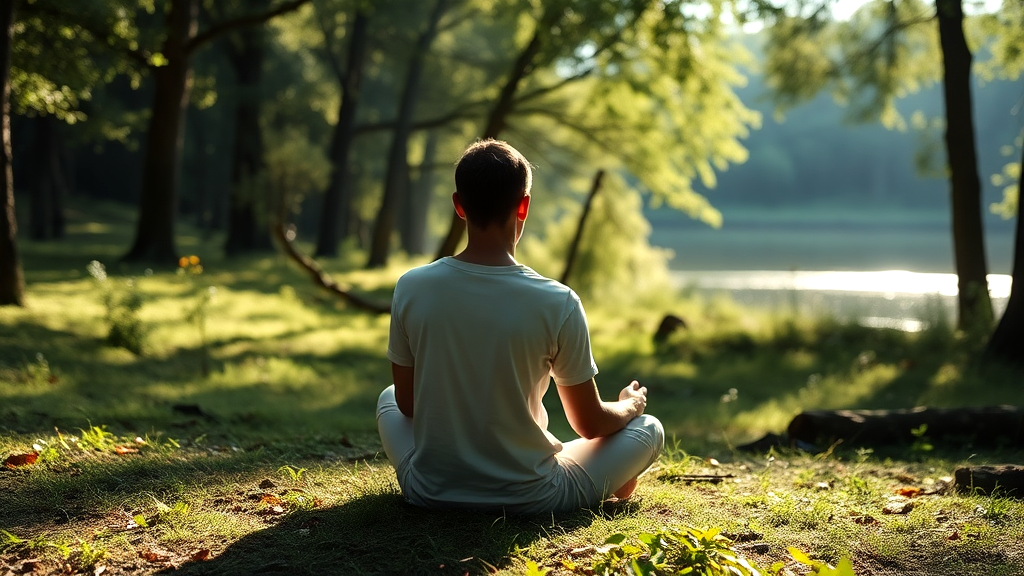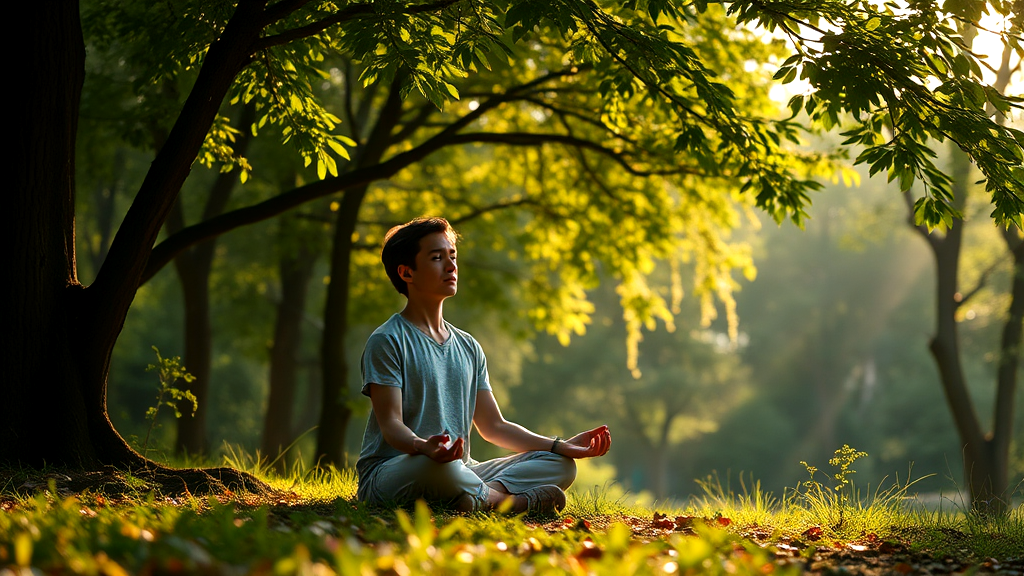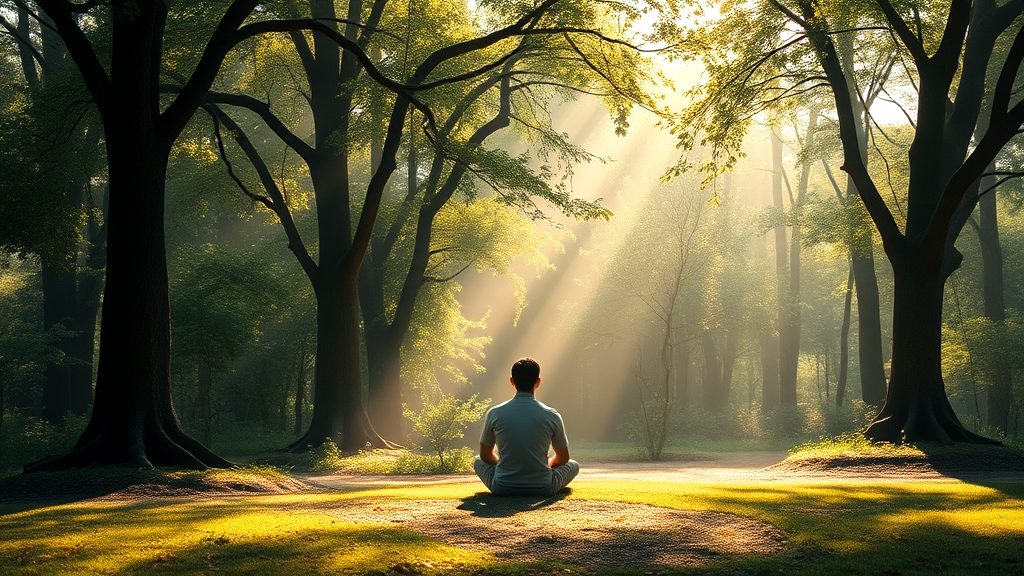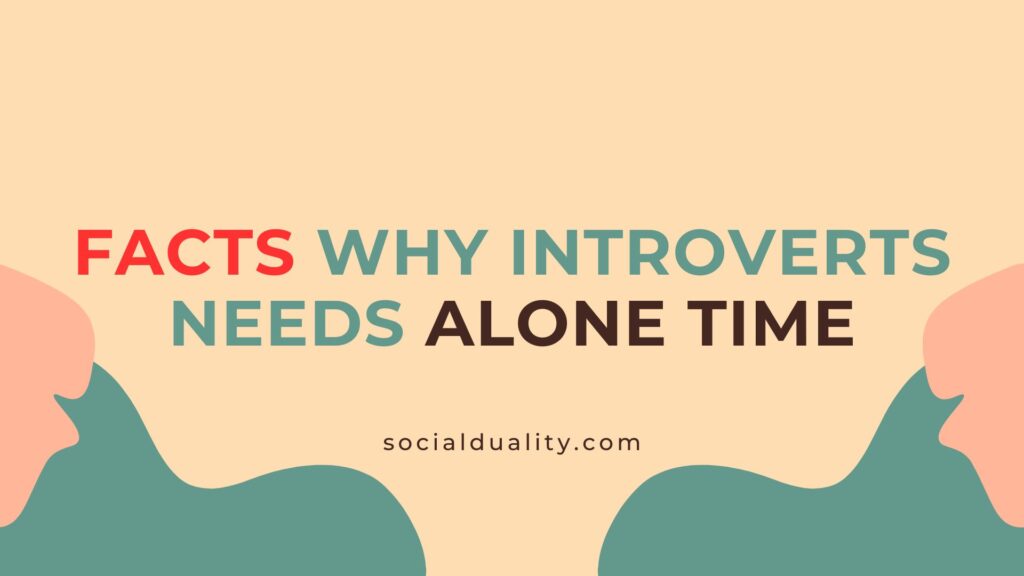Stepping away from the hustle lets introverted souls recharge. It’s like giving a phone a full battery—essential for introverts to regain mental energy. Isolation helps them handle dopamine levels, avoiding the overstimulation seen in crowded rooms. This downtime is akin to a guilt-free introverting roadmap, allowing creative sparks to fly.
For introverted people, time alone isn’t just about recharging; it’s an exploration. Their soul may wander, discovering new ideas and solutions. Spending time in solitude enhances problem-solving skills, offering a fresh perspective free from distractions.
Meanwhile, quality rest supports emotional balance. Like extroverts love socializing, introverts yearn for solace. This quiet time nurtures personal growth and mindfulness, creating inner peace. Even in a world buzzing with activity, introverts find their rhythm.
Comments from other users highlight how essential this is. They emphasize the need for self-care and the importance of guilt-free introverting to maintain equilibrium. As introverts begin their journey toward energy conservation, they’ll find a path lined with tranquility.
The Connection to Mental Health and Emotional Balance
Exploring how solitude supports mental wellness, introverted people find value in personal time. This quiet time isn’t just a break; it’s a chance to recharge and conserve energy. The importance of alone time becomes evident when considering its role in stress reduction. It’s like a mental spa day, where self-reflection and deep thinking happen. Introverts get a moment to process emotions and experiences, keeping emotional balance intact.
What about dopamine? For them, less is more. Their dopamine sensitivity means social events can be overwhelming, making solitary moments a necessity. Mindfulness practice during these times helps them navigate sensory overload and maintain inner peace.
Extroverts might question this need, but comments from users explainlikeimfive style clarify that it’s about personal growth and independence. Spending time alone is a chance to love oneself and engage in creative processing, which boosts problem-solving skills.
| Keyword | Role in Mental Health | Benefit |
|---|---|---|
| Recharge time | Energy conservation | Prevents burnout |
| Quality rest | Mental well-being | Improves concentration |
| Self-reflection | Emotional balance | Enhances personal growth |
| Solitude | Stress reduction | Encourages deep thinking |
| Mindfulness | Inner peace | Manages sensory overload |
Quality Rest and Stress Reduction
In the realm of restful quality and stress mitigation, introverted people find profound benefits in solitude. This quiet sanctuary allows them to begin a journey of self-reflection, fostering emotional balance and personal growth. As introverts explainlikeimfive, this quiet time is essential for recharging their mental batteries, conserving energy, and promoting deep thinking.
Dopamine, the pleasure molecule, plays a significant role in how introverts respond to and love alone moments. Too much social interaction can overwhelm their senses; thus, a retreat into solitude helps restore inner peace. Extroverts, on the other hand, might crave social buzz, but introverts thrive in silence, enhancing their creativity and problem-solving skills.
For those curious about the introverted experience, Introvert Dear offers insights into why personal space is crucial to their well-being. Comments from users highlight the importance of understanding these unique needs, offering a window into the quiet yet vibrant world of introverted souls.
- Enhances emotional balance and personal growth.
- Conserves energy by embracing solitude.
- Promotes deep thinking and creative processing.
- Manages sensory overload effectively.
- Supports mental well-being and stress reduction.
- Provides a sanctuary for mindfulness practice.
- Encourages independence and self-reflection.
- Facilitates problem-solving and innovation.

Solitude Enhancing Creativity and Problem-Solving
The act of withdrawing to recharge sparks a unique synergy between solitude and creativity. Introverts experience a realm where creativity flourishes, offering a canvas for deep thinking without distractions. Personal growth takes front and center, paving the way for independence. An introvert’s sensitivity to dopamine makes this quiet time not just desired but necessary—it’s like their brain saying, “Let’s pause and enjoy.
In this tranquility, creative processing becomes richer, fostering innovative ways to solve problems. With external pressures minimized, introverts can explore thoughts and emotions, much like an artist with a blank canvas. It’s a bit like having a secret love for puzzles; each piece fits into place without outside input.
As the world buzzes around them, introverts find inner peace, embracing the power of being alone. Comments from those who understand introverts, like “They need their quiet,” underline this necessity. This solitude isn’t about isolation—it’s about finding balance.
Deep Thinking and Creative Processing
Exploring the depths of thought and creativity often begins with quality alone time. By embracing solitude, individuals can recharge their mental batteries, ensuring emotional balance and stress reduction. Introverted personalities, in particular, find their energy conserved and replenished. They might love quiet time for self-reflection, which is essential for maintaining mental well-being.
Comments about introverts needing their quiet space are a testament to their unique needs. These moments allow for a deeper engagement in creative processing and problem-solving. It’s akin to allowing a garden to flourish without disturbances. With mindfulness practices, individuals achieve a state of inner peace, finding the benefits of solitude to be profound.
The importance of personal space cannot be overstated. Solitude acts as self-care, offering a chance to process thoughts without sensory overload. This sanctuary ensures introverts can thrive independently, with their need for quiet solitude well understood by those around them.
| Aspect | Benefits | Keywords | Examples |
|---|---|---|---|
| Alone Time | Mental recharge | Introverts, solitude | Quiet reflection |
| Emotional Balance | Stress reduction | Emotional balance | Peaceful environment |
| Creative Engagement | Problem-solving | Creative processing | Innovative ideas |
| Personal Space | Energy conservation | Importance of alone time | Mindful solitude |
Personal Growth and Independence
Understanding the growth and independence of introverts involves recognizing their need for quiet time for self-reflection. Introverts often require solitude to process their thoughts, akin to a mental pit stop. They thrive in silence, where deep thinking and creative processing occur, leading to personal growth. This quiet time is not just a preference but a necessity for them to achieve emotional balance and stress reduction.
For introverts, quality rest is essential for maintaining mental well-being and avoiding sensory overload. Dopamine plays a role here; introverts often need less to feel good, making solitude a key part of their recharge time. They find inner peace in mindful practices, embracing solitude as a form of self-care.
- Recharge Time: Essential for introverts to regain energy.
- Creative Processing: Solitude fosters innovation.
- Emotional Balance: Alone time aids emotional stability.
- Quality Rest: Ensures mental well-being.
- Mindfulness Practice: Encourages self-reflection.
- Personal Space: Crucial for recharging.
- Understanding Introvert Needs: Recognizing their love for solitude.
Curious about why introverts prefer quiet? Scientific American explains more here.

Self-Reflection and Mindfulness Practice
In the realm of personal growth, cultivating a practice of introspection and mindfulness can offer solace for introverts. They often need this quiet time to recharge their mental batteries after social interactions. This practice becomes essential for energy conservation, helping manage sensory overload and maintain emotional balance.
Solitude can enhance creative processing, allowing introverts to solve problems in innovative ways. Through self-reflection, they can achieve deep thinking and plan for the future without external pressures. This time fosters independence and strengthens their connection to their inner world.
Mindfulness practices, such as meditation or journaling, can provide introverts with the inner peace they crave. This helps them navigate their sensitive response to dopamine, preventing overstimulation. It’s like giving them a soft cushion to land on after a busy day. This approach ensures quality rest and keeps mental boundaries intact, empowering introverts to engage with the world on their own terms.
| Aspect | Benefit | Outcome | Relevance |
|---|---|---|---|
| Recharge Time | Energy Conservation | Balanced Mental Health | Crucial |
| Creative Processing | Innovative Problem-Solving | Enhanced Personal Growth | Important |
| Self-Reflection | Deep Thinking | Inner Peace | Essential |
| Mindfulness Practice | Stress Reduction | Emotional Balance | Highly Beneficial |
| Solitude for Introverts | Independence | Understanding Introvert Needs | Vital |
Importance of Quiet Time for Inner Peace
Exploring the essence of peace, quiet time serves as a lifeline for introverts. It might sound like a simple break, but this solitude is a powerhouse for mental clarity and emotional grounding. Imagine the mind as a battery. Alone time is the charger it needs. By stepping away from the hustle, introverts find their energy levels restoring, ready to tackle the world again.
This is where deep thinking and creative processing begin to shine. With distractions minimized, solutions to life’s puzzles appear clearer. It’s a moment of self-reflection, a chance for introverts to understand themselves better.
And let’s not forget the dopamine connection. Introverts need less of it, which means social buzz can be overwhelming. Quiet moments help balance this, leading to inner peace. So, if extroverts thrive in crowds, introverts thrive in silence. They truly love their personal space. As user comments often suggest, “Silence is golden.”
Understanding Sensory Overload and Energy Conservation
Understanding how sensory overwhelm ties to energy preservation is key for introverts. They may need quiet to recharge and maintain mental wellness. Social settings often leave them feeling drained. This is due to their heightened sensitivity to dopamine, which makes them more susceptible to sensory overload. Finding solitude helps them regain emotional balance and clarity.
This alone time isn’t just about resting; it’s a doorway to deep thinking and creative processing. Introverts often find that stepping back from the noise enhances their problem-solving skills. They love the freedom to explore ideas without interruption, leading to personal growth.
Mindfulness is another tool they use to keep stress at bay. Through self-reflection, they understand themselves better and manage energy levels effectively. So, while extroverts may thrive in social scenes, introverts treasure these moments of peace. As user comments frequently highlight, “Quiet solitude benefits” are abundant for an introverted soul.

Conclusion
Introverts treasure their alone time as a sanctuary for recharging and recalibrating. This solitude is not just a preference but a necessity for their mental and emotional well-being. Without it, they risk feeling frazzled and overwhelmed, like a phone battery running on empty. It’s during these quiet moments that they find the clarity to process thoughts and emotions.
In their private moments, creativity flourishes. Introverts often discover solutions and insights that might remain hidden in the hustle and bustle. They thrive on this introspective journey, nurturing personal growth and independence. Alone time is their oasis, a crucial element in maintaining balance. By embracing this need for solitude, introverts can navigate the world with renewed energy and confidence, ready to engage with others on their terms.
Why do introverts need alone time to recharge?
Introverts recharge by being alone. Social interactions can drain their energy. They have a sensitive response to dopamine, needing less of it to feel good. Too much socializing can overwhelm them.
How does alone time affect an introvert’s mental well-being?
Alone time is crucial for an introvert’s mental balance. It helps prevent burnout and stress. Without it, introverts may face sleep troubles and concentration issues. Solitude allows them to process emotions better.
Can solitude improve creativity and problem-solving for introverts?
Yes, solitude can boost creativity and problem-solving. Introverts thrive when they can think deeply without distractions. Alone time helps them reflect and find innovative solutions.
How does quiet time help introverts with self-reflection?
Quiet time allows introverts to practice mindfulness. It helps them understand themselves better and manage sensory overload. This practice ensures they can maintain their mental balance and avoid overstimulation.
What role does alone time play in energy conservation for introverts?
Alone time is essential for energy conservation. It allows introverts to recharge at their own pace. This helps them engage with the world without feeling overwhelmed.


